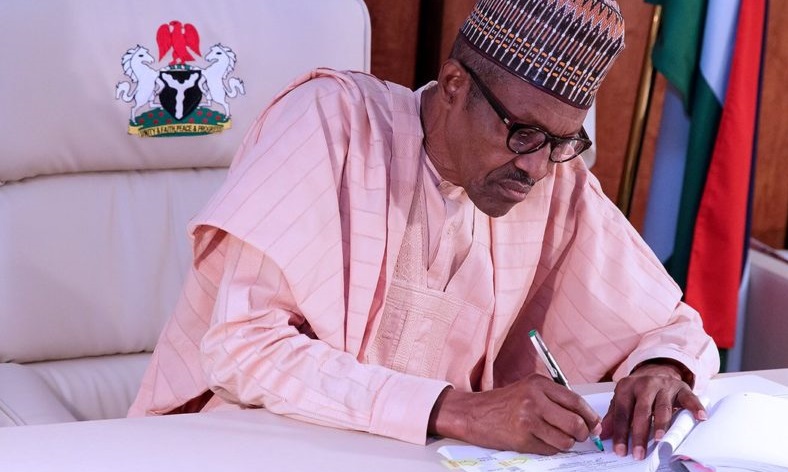
Nigeria climbed four places on Transparency International’s Corruption Perception Index for 2018.
In Transparency International’s report, Nigeria was ranked 144 out of 180 countries that were surveyed. In 2017, Nigeria was ranked four places lower sitting at 148 out of 180 countries.
Despite the four place jump, the nation’s 27/100 score shows no improvement as it is the same from the previous year.
Nigeria shares the 144th position with Kenya, Mauritania, Guatemala, and Comoros. Seychelles is the highest ranked African nation at 28th with a score of 66/100, while Somalia sits at the bottom of the list with 10 points.
Sub-Saharan Africa is the lowest scoring region on the index with Nigeria listed as one of the countries to watch in the region.
Corruption is much more likely to flourish where democratic foundations are weak and, as we have seen in many countries, where undemocratic and populist politicians can use it to their advantage,” Delia Ferreira Rubio, Chair of Transparency International said.
In the report’s analysis of Nigeria, it noted that President Muhammadu Buhari’s administration took a “number of positive steps in the past three years, including the establishment of a presidential advisory committee against corruption, the improvement of the anti-corruption legal and policy framework in areas like public procurement and asset declaration, and the development of a national anti-corruption strategy, among others.”
“However, these efforts have clearly not yielded the desired results. At least, not yet.”
Buhari was voted into power in 2015 with an anti-corruption war part of his key campaign promises. While there have been few convictions, critics say the anti-corruption fight of the president has been partisan.
Transparency International advised an improvement in the health of democratic institutions which includes supporting participation, transparency and trust, along with necessary checks and balances.
The 2018 CPI draws on 13 surveys and expert assessments to measure public sector corruption in 180 countries and territories, giving each a score from zero (highly corrupt) to 100 (very clean).
In this article:
In Transparency International’s report, Nigeria was ranked 144 out of 180 countries that were surveyed. In 2017, Nigeria was ranked four places lower sitting at 148 out of 180 countries.
Despite the four place jump, the nation’s 27/100 score shows no improvement as it is the same from the previous year.
Nigeria shares the 144th position with Kenya, Mauritania, Guatemala, and Comoros. Seychelles is the highest ranked African nation at 28th with a score of 66/100, while Somalia sits at the bottom of the list with 10 points.
Sub-Saharan Africa is the lowest scoring region on the index with Nigeria listed as one of the countries to watch in the region.
Corruption is much more likely to flourish where democratic foundations are weak and, as we have seen in many countries, where undemocratic and populist politicians can use it to their advantage,” Delia Ferreira Rubio, Chair of Transparency International said.
In the report’s analysis of Nigeria, it noted that President Muhammadu Buhari’s administration took a “number of positive steps in the past three years, including the establishment of a presidential advisory committee against corruption, the improvement of the anti-corruption legal and policy framework in areas like public procurement and asset declaration, and the development of a national anti-corruption strategy, among others.”
“However, these efforts have clearly not yielded the desired results. At least, not yet.”
Buhari was voted into power in 2015 with an anti-corruption war part of his key campaign promises. While there have been few convictions, critics say the anti-corruption fight of the president has been partisan.
Transparency International advised an improvement in the health of democratic institutions which includes supporting participation, transparency and trust, along with necessary checks and balances.
The 2018 CPI draws on 13 surveys and expert assessments to measure public sector corruption in 180 countries and territories, giving each a score from zero (highly corrupt) to 100 (very clean).
In this article:
